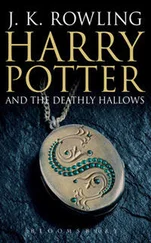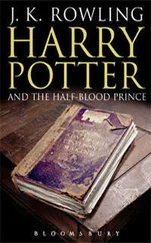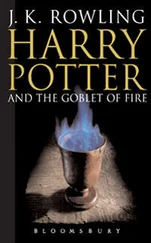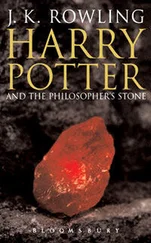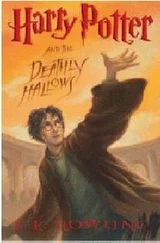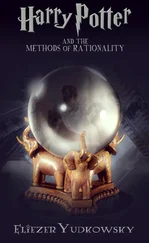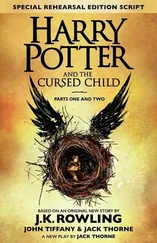G. Lippert - James Potter and the Hall of the Elders' Crossing
Здесь есть возможность читать онлайн «G. Lippert - James Potter and the Hall of the Elders' Crossing» весь текст электронной книги совершенно бесплатно (целиком полную версию без сокращений). В некоторых случаях можно слушать аудио, скачать через торрент в формате fb2 и присутствует краткое содержание. Жанр: Старинная литература, на английском языке. Описание произведения, (предисловие) а так же отзывы посетителей доступны на портале библиотеки ЛибКат.
- Название:James Potter and the Hall of the Elders' Crossing
- Автор:
- Жанр:
- Год:неизвестен
- ISBN:нет данных
- Рейтинг книги:5 / 5. Голосов: 1
-
Избранное:Добавить в избранное
- Отзывы:
-
Ваша оценка:
- 100
- 1
- 2
- 3
- 4
- 5
James Potter and the Hall of the Elders' Crossing: краткое содержание, описание и аннотация
Предлагаем к чтению аннотацию, описание, краткое содержание или предисловие (зависит от того, что написал сам автор книги «James Potter and the Hall of the Elders' Crossing»). Если вы не нашли необходимую информацию о книге — напишите в комментариях, мы постараемся отыскать её.
James Potter and the Hall of the Elders' Crossing — читать онлайн бесплатно полную книгу (весь текст) целиком
Ниже представлен текст книги, разбитый по страницам. Система сохранения места последней прочитанной страницы, позволяет с удобством читать онлайн бесплатно книгу «James Potter and the Hall of the Elders' Crossing», без необходимости каждый раз заново искать на чём Вы остановились. Поставьте закладку, и сможете в любой момент перейти на страницу, на которой закончили чтение.
Интервал:
Закладка:
At night, as he was drifting to sleep, James often found his thoughts returning, strangely enough, to his conversation with the portrait of Severus Snape. Snape had said he'd be watching James, but James couldn't imagine how that could be. There was only one portrait of Snape on the Hogwarts grounds, as far as James knew, and it was up in the Headmistress' office. How could Snape possibly be watching James? Snape had been a powerful wizard, and a potions genius according to Dad and Mum, but how would either of those things allow his portrait to see around the castle? Still, James didn't doubt Snape. If Snape said he was watching him, James felt confident that, somehow or other, it was true. It was only after two weeks of mulling over the conversation he'd had with Snape that James realized what struck him most about it. To Snape, unlike James and the rest of the wizarding world, it was a foregone conclusion that James was just like his father. "Like Potter, like son," he'd said, sneering. Ironically, though, to Snape, if no one else, this was not precisely a good thing.
As the leaves in the Forbidden Forest began to settle into the browns and yellows of autumn, the blue Progressive Element buttons were augmented by the posters and banners for the first All-School Debate. As Ralph had predicted, the theme was 'Re-evaluating the Assumptions of the Past: Truth or Conspiracy'. As if the words themselves weren't enough, the right side of each banner and poster bore a drawing of a lightning bolt that was enchanted to shift into the shape of a question mark every few seconds. Zane, who, according to Petra, was quite good at debate, told James that the school debate committee had argued for quite some time about the topic of the first event. Tabitha Corsica was not on the debate committee, but her crony, Philia Goyle, was the committee chair.
"So in the end," Zane had reported to James, "the debate team turned out to be a great example of democracy in action: they argued all night, then she chose." He shrugged wearily.
The sight of the signs and banners, and especially, that very unambiguous lightning bolt, made James' blood boil. Seeing Ralph on a ladder finishing hanging one of the banners just outside the door to Technomancy class was more than he could take.
"I'm surprised you can reach like that, Ralph," James said, anger pushing the words out, "what with Tabitha Corsica's hand so far up your backside."
Zane, who'd been walking next to James, sighed and ducked into the classroom. Ralph hadn't noticed James until he spoke. He glanced down, his expression surprised and wounded. "What's that supposed to mean?" he demanded.
"It means, I'd think by now, you'd have gotten sick of being her little first-year puppet." James already regretted saying anything. The guileless misery on Ralph's face shamed him.
Ralph had the mantra down well, though. "Your people are the puppetmasters, preying on the fears of the weak-minded to maintain the demagoguery of prejudice and unfairness," he said, but without much conviction. James rolled his eyes and walked into the classroom.
Professor Jackson was absent from his usual spot behind the teacher's desk. James sat next to Zane in the front row. As he sat down, he made a point of joking and laughing with a few other Gryffindors nearby, knowing Ralph was watching through the doorway. The mean pleasure it gave him was hollow and raw, but it was pleasure nonetheless.
Finally, the room hushed. James looked up and saw Professor Jackson entering, carrying something under his arm. The object was large, flat, and wrapped in cloth.
"Good morning, class," he said in his usual, brusque manner. "Your last week's essays are graded and on my desk. Mr. Murdock, would you mind distributing them, please? On the whole, I am not terribly disappointed, although I think most of you can be relieved that Hogwarts does not generally grade on the curve."
Jackson carefully set his parcel on the desk. As he unfolded the cloth from around it, James could see that it was a stack of three rather small paintings. He thought of the painting of Severus Snape and his attention perked up.
"Today is a day for taking notes, I can assure you," Jackson said ominously. He arranged the paintings in a row along the shelf of the chalkboard. The first painting was of a thin man with owlish glasses and an almost perfectly bald head. He blinked at the class, his expression alert and slightly nervous, as if he expected someone, at any moment, to jump up and shout "Boo!" at him. The next painting was empty but for a rather bland wooded background. The last showed a fairly ghastly clown in white face with a hideously large, red smile painted over its mouth. The clown leered inanely at the class and shook a little cane with a ball on the end. The ball, James noticed with a shudder, was a tiny version of the clown's own head, grinning even more insanely.
Murdock finished handing back everyone's papers and slid back into his own seat. James glanced down at his essay. On the front, in Jackson's perfect, left-slanting cursive, were the words, Tepid, but borderline cogent. Grammar needs work.
"As always, questions about your grades may be submitted to me in writing. Further discussion will be obtained, as needed, during my office hours, assuming any of you remember where my office is. And now, onward and upward." Jackson paced slowly along the line of paintings, gesturing vaguely at them. "As many of you will recall, in our first class, we had a short discussion, spearheaded by Mr. Walker," he peered beneath his bushy eyebrows in Zane's direction, "about the nature of magical art. I explained that the artist's intentions are imbued on the canvas via a magical, psycho-kinetic process, which allows the art to take on a semblance of motion and attitude. The result is a drawing that moves and mimics life at the whim of the artist. Today, we will examine a different kind of art, one that represents life in a wholly different way."
Quills scratched feverishly as the class struggled to keep up with Jackson's monologue. As usual, Jackson paced as he spoke.
"The art of magical painting comes in two forms. The first one is just a more lavish version of what I illustrated in class, which is the creation of purely fanciful imagery based on the imagination of the artist. This is different from Muggle art only inasmuch as the magical versions may move and emote, based on the intention--and only within the imaginative boundaries--of the artist. Our friend, Mr. Biggles here, is an example." Jackson gestured at the painting of the clown. "Mr. Biggles, thankfully, never existed outside the imagination of the artist who painted him." The clown responded to the attention, bobbing in its frame, waggling the fingers of one white-gloved hand and waving the cane in the other. The tiny clown's head on the end of the cane ran its tongue out and crossed its eyes. Jackson glared at the thing for a moment, and then sighed as he began to pace again.
"The second type of magical painting is much more precise. It depends on advanced spellwork and potion-mixed paints to recreate a living individual or creature. The technomancic name for this type of painting is imago aetaspeculum, which means… can anyone tell me?"
Petra raised her hand and Jackson nodded at her. "It means, I think, something like a living mirror image, sir?"
Jackson considered her answer. "Half credit, Miss Morganstern. Five points to Gryffindor for effort. The most accurate definition of the term is 'a magical painting that captures a living imprint of the individual it represents, but confined within the aetas, or timeframe, of the subject's own lifetime'. The result is a portrait that, while not containing the living essence of the subject, mirrors every intellectual and emotional characteristic of that subject. Thus, the portrait does not learn and evolve beyond the subject's death, but retains exactly that subject's personality as strictly defined by his or her lifetime. We have Mr. Cornelius Yarrow here as an example."
Читать дальшеИнтервал:
Закладка:
Похожие книги на «James Potter and the Hall of the Elders' Crossing»
Представляем Вашему вниманию похожие книги на «James Potter and the Hall of the Elders' Crossing» списком для выбора. Мы отобрали схожую по названию и смыслу литературу в надежде предоставить читателям больше вариантов отыскать новые, интересные, ещё непрочитанные произведения.
Обсуждение, отзывы о книге «James Potter and the Hall of the Elders' Crossing» и просто собственные мнения читателей. Оставьте ваши комментарии, напишите, что Вы думаете о произведении, его смысле или главных героях. Укажите что конкретно понравилось, а что нет, и почему Вы так считаете.

